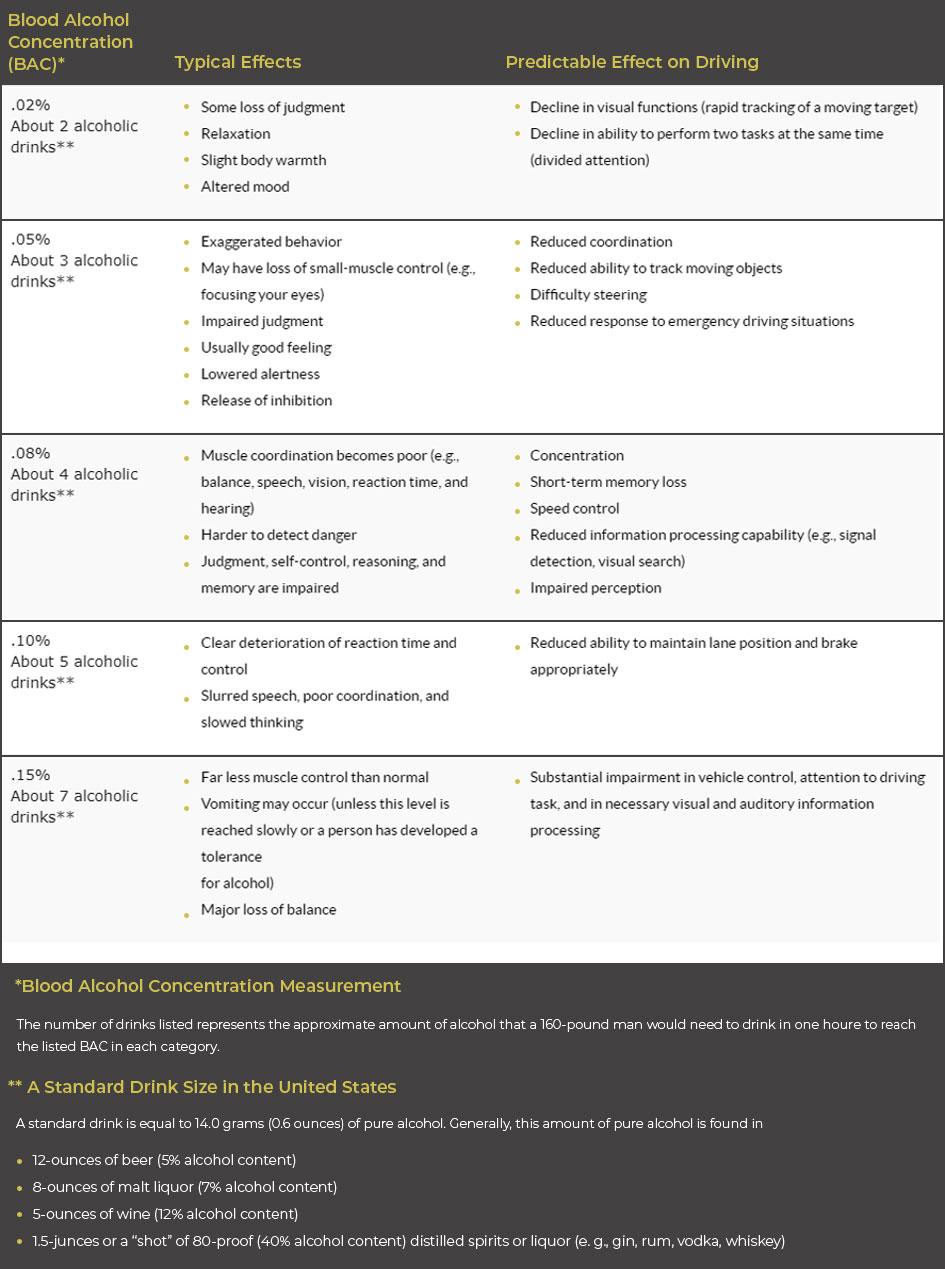BAC FACTS
BAC stands for Blood Alcohol Content or Concentration. It is also commonly known as Blood Alcohol Level. It is the most commonly used measurement of alcohol intoxication for legal purposes. The value is expressed as a percentage of alcohol per 100ml of blood. For example, 0.2% BAC indicates that there is around 0.2g of alcohol per 100ml of blood.
BAC can be affected by a number of different factors including sex, weight, height, altitude, the number of drinks, the type of alcohol, the speed at which alcohol has been consumed, food in the stomach, fatigue, stress, mood and alcohol tolerance. It can be difficult to accurately predict how many drinks it takes to get drunk or to reach the legal limit for driving. The answer not only varies from person to person but can change for the same individual based on circumstance.
The only proven way to lower your blood alcohol content is time! All of those other tricks like coffee, fresh air, and cold showers are myths. A huge percentage of DUI offenses occur when the driver still has an illegal BAC the morning after they have been drinking.
You can deduct 0.015 from your blood alcohol level for every hour that has passed since your last drink.
For example: If you go to bed at 2am with a blood alcohol level of 0.20 and head to work at 9am it is likely that your blood alcohol level will be around 0.095 making you legally intoxicated. If you waited until 11am (9 hours) your blood alcohol level should be around 0.065 putting you under the legal limit. You can use the free tool at www.whenwillibesober.com to get a rough idea of what time you will be legally safe to drive.
The Effects of Blood Alcohol Concentration

BAC Limits in Tennessee
In the state of Tennessee, the blood alcohol level at which a driver is presumed to be drunk is 0.08%. This is known as the ‘per se’ BAC. However, if a driver has a high BAC of 0.20% or over they can be charged more severely and be subject to enhanced DUI penalties. Commercial drivers have a lower limit of 0.04%.
There is also a zero tolerance policy in place for those under the age of 21. A person under 21 years of age who is found to have a BAC of 0.02% while driving can be convicted of DUI even if they are not drunk. Youths aged 16 to 20 years will usually receive a $250 fine, a one year revoked license and possibly community service.
Implied Consent
In Tennessee, an ‘implied consent’ law is in effect. If you refuse to submit to a chemical test to determine your blood alcohol level you are subject to a fine and an automatic license suspension. This depends on the arresting officer having probable cause to believe you are driving under the influence.
Subscribe to our Newsletter
We will only send you important updates and notices.
